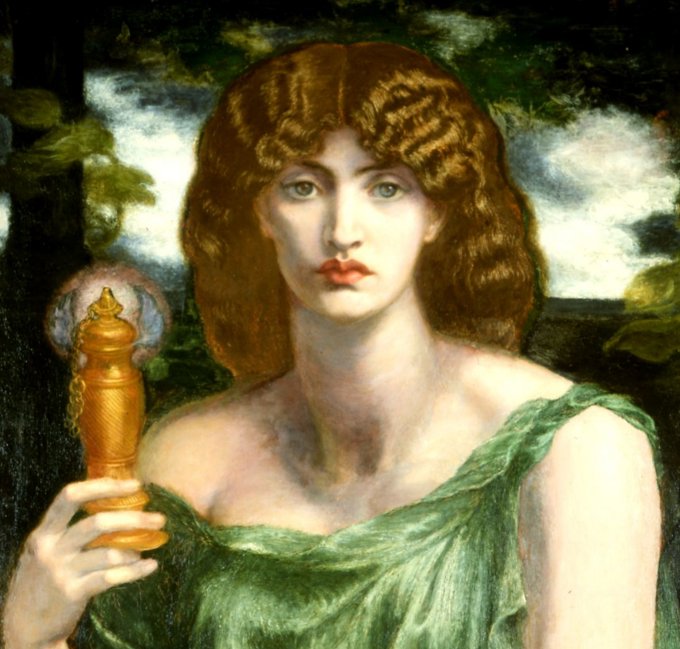Mnemosyne: Powerful Greek Goddess Of Memory, Bridge Between The Past And The Future
A. Sutherland - AncientPages.com - In ancient times, the art of memorization was of great importance to people in many cultures. Storytelling and creativity are necessary to cultivate memory that maintains cultural values.
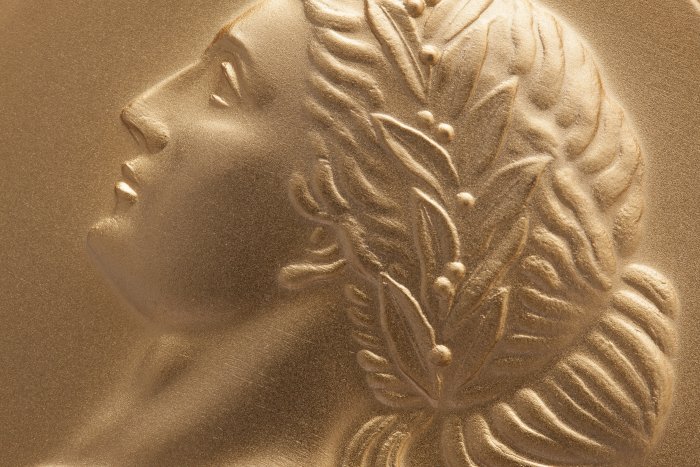 Credit: Adobe Stock - Paylessimages
Credit: Adobe Stock - Paylessimages
We must develop reading, teaching, and understanding skills with memory.
It is no coincidence that much attention is paid to Mnemosyne, the goddess of speech and language, the symbol of memory, and the Mother of Inspiration in Greek mythology.
Zeus gave her the privilege of naming all the things on the earth.
With beautiful hair, often related to sensuality, Mnemosyne was the daughter of Uranus and Gaia and one of the Titans. Together with Zeus, she was the parent of the nine Muses. As such, she was also the goddess of time.
The poets and artists of Greece, Rome, and other parts of the world traditionally invoked these extraordinary divine individuals. The god of art, Apollo, was also "Muse Leader" (Musagetes), in addition to his many other titles. He loved all the nine muses for their very unique inspiration. However, he never gave an impression of favoring one over the others.
The Muses lived on Mount Helicon or Mount Parnassos. Each of them was associated with a particular art. For example, Calliope was the patroness of poetry, Clio was a patroness of history, Melpomene was a tragedy, and Euterpe was related to flute players, joy, and pleasure. Terpsichore was the patroness of choral dance and dramatic chorus. Urania was associated with astronomy and celestial forces, Thalia with comedy and pastoral poetry, Erato supported erotic poetry, and Polymnia was the goddess of music, song, and dance.
Mnemosyne was also the inventor of language and words. As closely associated with remembrance, Mnemosyne was a deity of great importance to ancient Greeks, who paid her much attention.
She is the one who allows people to "recognize themselves, others, and all the things of the world – and not just name them correctly. She makes connections between all people and things. She does not just bring the universe forward as in a quiet "show and tell. She reveals "cause and effect"; she organizes "before and after" and all time." 1
Mnemosyne (aka Lamp of Memory or Ricordanza) by Dante Gabriel Rossetti (c. 1876 to 1881) - Public Domain
Thanks to her, we can see differences and similarities that form the basis of all knowledge we can reach.
So, as we see, Mnemosyne is crucial for our existence, and we depend on her. She is the bridge between the past and the future.
Peter C. Orlando also says that "no society or person can survive without memory. Without memory, we are frozen in the present, like ice statues." 1
In ancient works of art, Mnemosyne was usually portrayed with her daughters – the Muses – but occasionally, she was depicted as a woman who supports her chin, giving an impression of meditating.
However, besides her association with her nine daughters, Mnemosyne was responsible for a pool in Hades.
According to a series of Greek tomb inscriptions from 300 BC, the pool was opposite the River Lethe, one of the five rivers of the underworld of Hades. The so-called Mnemosyne's Pool was known to have powers to restore or at least ensure the people's good memory, and occasionally, some Greeks were encouraged to drink from this source instead of the River Lethe.
On the other hand, the River Lethe caused dead souls who drank from it to forget their former lives when they reawakened into the world of the living.
Written by – A. Sutherland - AncientPages.com Senior Staff Writer
Updated on Feb 1, 2024
Copyright © AncientPages.com All rights reserved. This material may not be published, broadcast, rewritten or redistributed in whole or part without the express written permission of AncientPages.com
Expand for referencesOrlando, Peter C. "Mnemosyne: A Goddess for Storytelling, Creativity, and Reading Comprehension." Educational Horizons 84, no. 3 (2006): 151-56.
Leeming, D. The Oxford Companion to World Mythology
Tanner, R. Greek Mythology
More From Ancient Pages
-
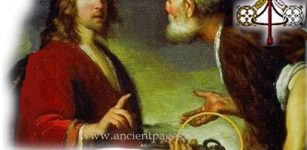 Story Behind The Two Keys On Vatican’s Flag
Ancient History Facts | Feb 28, 2018
Story Behind The Two Keys On Vatican’s Flag
Ancient History Facts | Feb 28, 2018 -
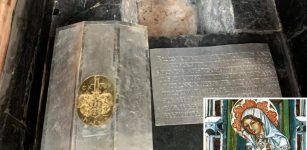 Hidden Silver Casket With Bones Of 13th Century Saint Found
Archaeology | Mar 22, 2020
Hidden Silver Casket With Bones Of 13th Century Saint Found
Archaeology | Mar 22, 2020 -
 Cimmerians – Ancient People Searching For A Home
Civilizations | Feb 11, 2019
Cimmerians – Ancient People Searching For A Home
Civilizations | Feb 11, 2019 -
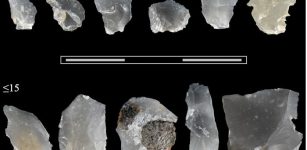 Scientists Unravel Why Humans Used Tiny Flakes 300,000 Years Ago
Archaeology | Dec 15, 2022
Scientists Unravel Why Humans Used Tiny Flakes 300,000 Years Ago
Archaeology | Dec 15, 2022 -
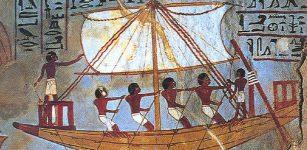 Mysterious Sherbrooke Stones – Did Africans Visit North America 2,500 Years Ago?
Artifacts | Nov 23, 2017
Mysterious Sherbrooke Stones – Did Africans Visit North America 2,500 Years Ago?
Artifacts | Nov 23, 2017 -
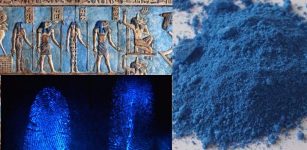 Ancient Egyptian Blue Powder Makes Fingerprints Glow And Will Be Used By Crime Scene Investigators
Ancient Technology | Jun 15, 2017
Ancient Egyptian Blue Powder Makes Fingerprints Glow And Will Be Used By Crime Scene Investigators
Ancient Technology | Jun 15, 2017 -
 Neanderthals And Homo Sapiens Invented Different Fire Techniques – Evolution Of Human Cognition
Archaeology | Jun 1, 2023
Neanderthals And Homo Sapiens Invented Different Fire Techniques – Evolution Of Human Cognition
Archaeology | Jun 1, 2023 -
 Unexplained Mysteries Of The Superstition Mountains – A Gateway To Other Worlds?
Featured Stories | Dec 15, 2020
Unexplained Mysteries Of The Superstition Mountains – A Gateway To Other Worlds?
Featured Stories | Dec 15, 2020 -
 Unknown Neanderthal Lineage Discovered In “Thorin” Who Lived 50,000 Years Ago
DNA | Sep 11, 2024
Unknown Neanderthal Lineage Discovered In “Thorin” Who Lived 50,000 Years Ago
DNA | Sep 11, 2024 -
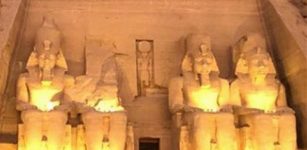 Magnificent Solar Alignment Phenomenon In Abu Simbel – The Sun Illuminates The Face Of Pharaoh Ramses II
Featured Stories | Nov 11, 2020
Magnificent Solar Alignment Phenomenon In Abu Simbel – The Sun Illuminates The Face Of Pharaoh Ramses II
Featured Stories | Nov 11, 2020 -
 Clues To The Mysterious Dog-Headed St. Christopher And His Connection To The Egyptian Jackal God Anubis Found?
Featured Stories | Jan 14, 2025
Clues To The Mysterious Dog-Headed St. Christopher And His Connection To The Egyptian Jackal God Anubis Found?
Featured Stories | Jan 14, 2025 -
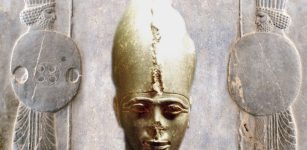 Pharaoh Psamtik III’s Deadly Encounter With Cambyses II Of Persia Ended The 26th Dynasty Of Egypt
Featured Stories | Apr 16, 2021
Pharaoh Psamtik III’s Deadly Encounter With Cambyses II Of Persia Ended The 26th Dynasty Of Egypt
Featured Stories | Apr 16, 2021 -
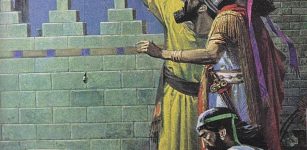 Babylonian Astronomers Used Geometry To Track Jupiter – 1,400 Years Before Europeans
Archaeology | Jan 28, 2016
Babylonian Astronomers Used Geometry To Track Jupiter – 1,400 Years Before Europeans
Archaeology | Jan 28, 2016 -
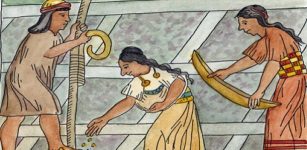 Why Was Ayllu Very Important For The Inca People?
Ancient History Facts | Feb 19, 2019
Why Was Ayllu Very Important For The Inca People?
Ancient History Facts | Feb 19, 2019 -
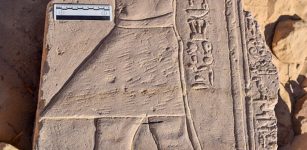 2nd Century Roman Temple Unearthed In Aswan, Egypt
Archaeology | Feb 23, 2018
2nd Century Roman Temple Unearthed In Aswan, Egypt
Archaeology | Feb 23, 2018 -
 Ice Age Cycles Played A Key Role In Early Human Interbreeding
DNA | Oct 19, 2023
Ice Age Cycles Played A Key Role In Early Human Interbreeding
DNA | Oct 19, 2023 -
 Harappan Civilization Built Massive Protection Walls Against Tsunami 5,000 Years Ago
Archaeology | Jan 10, 2017
Harappan Civilization Built Massive Protection Walls Against Tsunami 5,000 Years Ago
Archaeology | Jan 10, 2017 -
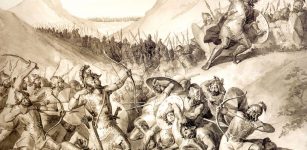 Armenia: Old Land Where Myths, Legends And Long History Meet
Civilizations | Apr 20, 2016
Armenia: Old Land Where Myths, Legends And Long History Meet
Civilizations | Apr 20, 2016 -
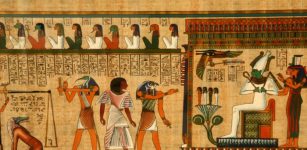 First Book Of Breathing: Egyptian Papyrus Sheds Light On Funerary Text Helping The Deceased In Afterlife
News | Oct 22, 2020
First Book Of Breathing: Egyptian Papyrus Sheds Light On Funerary Text Helping The Deceased In Afterlife
News | Oct 22, 2020 -
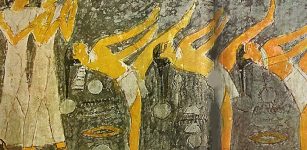 How Important Was Dance In Ancient Egypt And What Purpose Did It Serve?
Ancient History Facts | May 5, 2021
How Important Was Dance In Ancient Egypt And What Purpose Did It Serve?
Ancient History Facts | May 5, 2021

